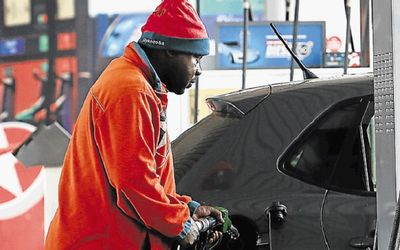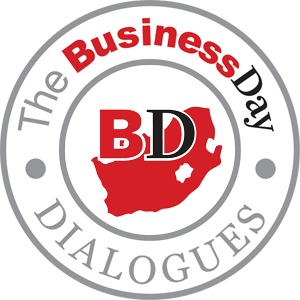FUEL LEVY & SIN TAXES: Drivers, smokers and drinkers to cough up more to boost revenue
FINANCE Minister Pravin Gordhan’s targeted increases in the fuel levy and excise duty on tobacco and liquor products on Wednesday to raise sufficient revenue to keep the budget deficit going down.
Before his budget speech, there was considerable speculation about whether Mr Gordhan would use an increase in value-added tax to raise revenue, but this would have been politically unpopular with the African National Congress’s alliance partners, which appears to have caused him to opt for the fuel levy and excise duty instead.
The general fuel levy will go up 30c a litre, taking the total levy on petrol for 2016-17 to R2.85 and on diesel to R2.70.
When all the fuel levies are added up, they add R4.43 to the price of a litre of fuel.
The new levy will kick in on April 6.
The excise duty increases for so-called sin taxes remain largely unchanged in real terms, with increases largely equal to the 6.8% inflation rate.
These increases will raise about R9.5bn.
The Budget Review says that "in line with health and fiscal policy objectives, tax rates on alcoholic beverages have been consistently increased beyond inflation since 2002".
The 2016 budget continues this trend, with excise duty rate increases ranging between 6.7 and 8.5%.
The increases in excise duty mean that consumers will pay 11c more for a can of beer, 18c more for a bottle of wine, R3.94 more for a bottle of spirits, and 82c more for a packet of cigarettes.
As is usual, again this year there was no increase in duty for traditional African beer.
This means that the price effectively comes down by 6.8%, the rate of inflation.
"The excise duty on sparkling wine has risen well above inflation in recent years, mainly due to the influence of high priced imports. As a result the difference in duties on sparkling wine and still wine has increased substantially. It is proposed that the current difference between the excise duty for sparkling and natural wine be maintained by pegging the rate for sparkling wine excise rate at 3.2 times that of natural unfortified wine," the Budget Review says.
It also explains that historical changes in duty structure and regulatory requirements have led to brandy being at a competitive disadvantage relative to other spirits.
"To level the playing field, government proposes that a 10% lower excise duty, based on litres of absolute alcohol content, be applied to stilled and vintage brandy and phased in over the next two years," the Budget Review says.
The excise adjustments for cigarettes, cigarette tobacco and pipe tobacco are attributed to inflation-linked price increases for the most popular brands in each category.
A review of tobacco product taxation will begin in 2016-17 and will consider both existing and nontraditional products and their alternatives, such as electronic cigarettes.
It has also been proposed that mixtures of grain fermented beverages (such as beverages made from maize) with an alcohol content which ranges from 2.5% to 9% by volume are proposed as an additional category of excise duty, and that "these beverages will be taxed at the beer rate based on absolute alcohol content".

The combined fuel levies will add R4.43 to the price of a litre of fuel. Picture: THE TIMES
FINANCE Minister Pravin Gordhan’s targeted increases in the fuel levy and excise duty on tobacco and liquor products on Wednesday to raise sufficient revenue to keep the budget deficit going down.
Before his budget speech, there was considerable speculation about whether Mr Gordhan would use an increase in value-added tax to raise revenue, but this would have been politically unpopular with the African National Congress’s alliance partners, which appears to have caused him to opt for the fuel levy and excise duty instead.
The general fuel levy will go up 30c a litre, taking the total levy on petrol for 2016-17 to R2.85 and on diesel to R2.70.
When all the fuel levies are added up, they add R4.43 to the price of a litre of fuel.
The new levy will kick in on April 6.
The excise duty increases for so-called sin taxes remain largely unchanged in real terms, with increases largely equal to the 6.8% inflation rate.
These increases will raise about R9.5bn.
The Budget Review says that "in line with health and fiscal policy objectives, tax rates on alcoholic beverages have been consistently increased beyond inflation since 2002".
The 2016 budget continues this trend, with excise duty rate increases ranging between 6.7 and 8.5%.
The increases in excise duty mean that consumers will pay 11c more for a can of beer, 18c more for a bottle of wine, R3.94 more for a bottle of spirits, and 82c more for a packet of cigarettes.
As is usual, again this year there was no increase in duty for traditional African beer.
This means that the price effectively comes down by 6.8%, the rate of inflation.
"The excise duty on sparkling wine has risen well above inflation in recent years, mainly due to the influence of high priced imports. As a result the difference in duties on sparkling wine and still wine has increased substantially. It is proposed that the current difference between the excise duty for sparkling and natural wine be maintained by pegging the rate for sparkling wine excise rate at 3.2 times that of natural unfortified wine," the Budget Review says.
It also explains that historical changes in duty structure and regulatory requirements have led to brandy being at a competitive disadvantage relative to other spirits.
"To level the playing field, government proposes that a 10% lower excise duty, based on litres of absolute alcohol content, be applied to stilled and vintage brandy and phased in over the next two years," the Budget Review says.
The excise adjustments for cigarettes, cigarette tobacco and pipe tobacco are attributed to inflation-linked price increases for the most popular brands in each category.
A review of tobacco product taxation will begin in 2016-17 and will consider both existing and nontraditional products and their alternatives, such as electronic cigarettes.
It has also been proposed that mixtures of grain fermented beverages (such as beverages made from maize) with an alcohol content which ranges from 2.5% to 9% by volume are proposed as an additional category of excise duty, and that "these beverages will be taxed at the beer rate based on absolute alcohol content".













 News, views and analysis of Finance Minister Pravin Gordhan's 2016 budget
News, views and analysis of Finance Minister Pravin Gordhan's 2016 budget













Change: -0.47%
Change: -0.57%
Change: -1.76%
Change: -0.34%
Change: 0.02%
Data supplied by Profile Data
Change: -1.49%
Change: 0.08%
Change: -0.47%
Change: 0.00%
Change: -0.04%
Data supplied by Profile Data
Change: -0.34%
Change: 0.03%
Change: -0.10%
Change: -0.22%
Change: -0.69%
Data supplied by Profile Data
Change: -0.28%
Change: -1.15%
Change: -0.07%
Change: -1.21%
Change: -0.22%
Data supplied by Profile Data